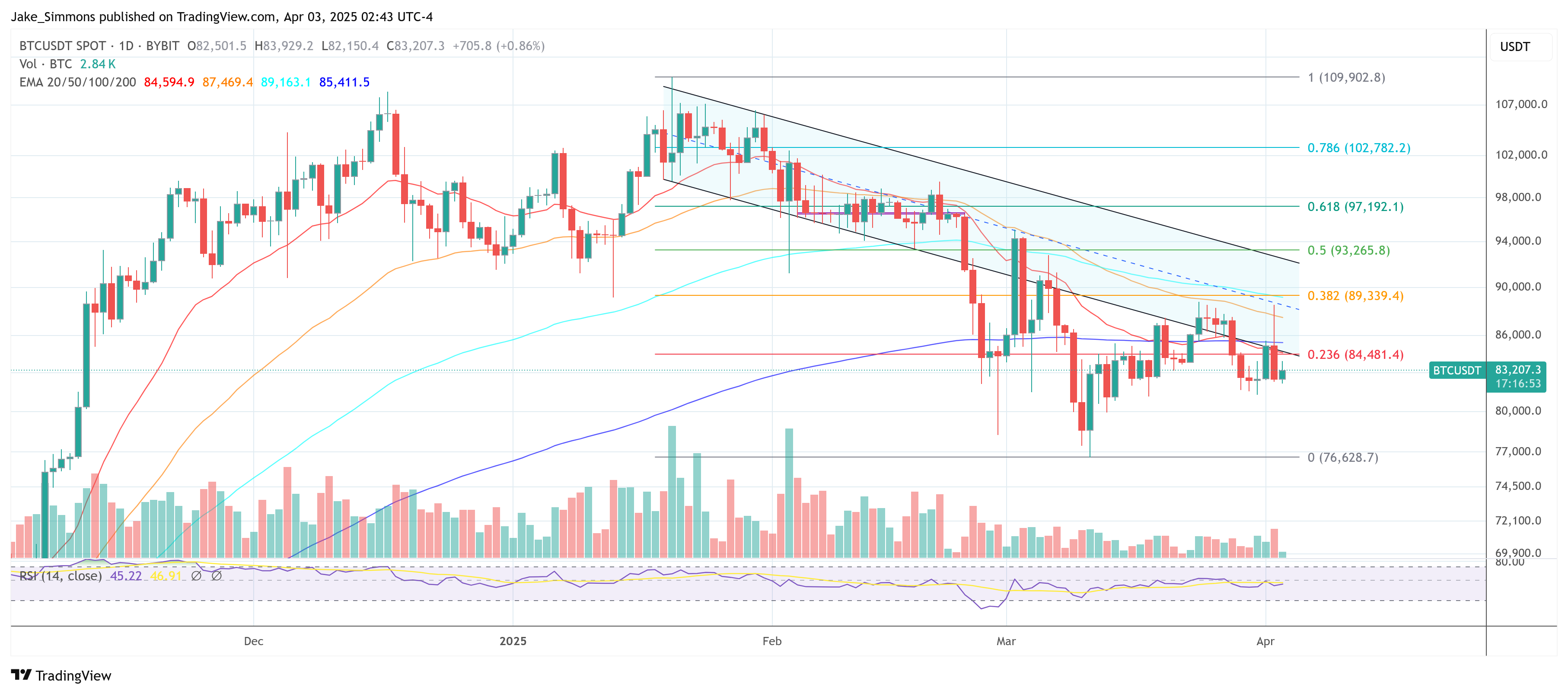Trump’s surprise tariff announcement sent shockwaves through the global economy, and Bitcoin wasn’t immune.
The Tariff Bombshell
President Trump announced massive reciprocal tariffs on goods from 185 countries. This wasn’t just a small tweak; experts called it one of the largest tariff packages in US history. The news caused immediate chaos. Futures markets plummeted – the S&P 500 futures lost a staggering $2 trillion in market cap in under 15 minutes! Initially reported as a 10% tariff across the board, the actual impact was far more significant. The tariffs are based on a “reciprocal” system, matching or exceeding the tariffs other countries impose on US goods. This meant some countries faced tariffs far higher than the initial 10% estimate – China, for example, could see a 34% tariff.
Bitcoin’s Tumble
Bitcoin, which had been doing well, immediately felt the impact. Within four hours, its price dropped 7.2%, from around $88,500 to $82,150. This mirrored the broader market turmoil. One crypto analyst commented that Trump’s tariffs are bad news for Bitcoin and the US economy, citing increased uncertainty and the risk of recession.
Economic Fallout: Recession Fears
The long-term economic consequences are still uncertain, but the predictions aren’t pretty. Some analysts project a significant tax increase and a boost in inflation, potentially pushing the US economy into a recession. One firm even suggested that permanent implementation of these tariffs could lead to 5% inflation. Despite Trump mentioning future tax cuts, the market didn’t react positively. The immediate shock from the tariffs overshadowed any potential future relief.
The Aftermath
While the initial drop was significant, Bitcoin did recover somewhat by the time this was written, trading around $83,207. However, the event highlights the interconnectedness of global markets and Bitcoin’s vulnerability to major economic events.






